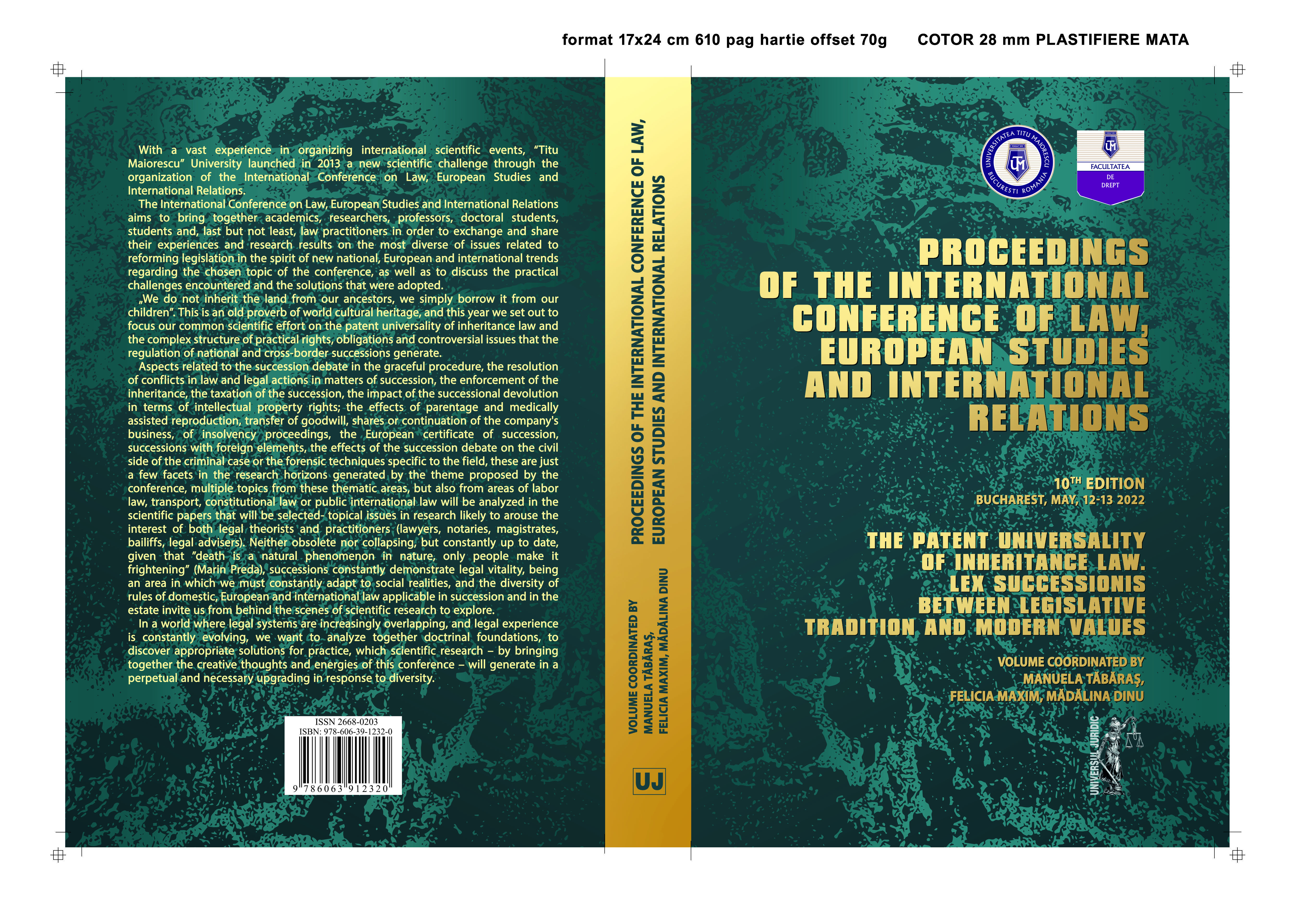SUCCESSION INDIGNITY IN THE CASE OF MURDER COMMITTED FOR MATERIAL INTEREST
SUCCESSION INDIGNITY IN THE CASE OF MURDER COMMITTED FOR MATERIAL INTEREST
Author(s): Vasile ComanSubject(s): Law, Constitution, Jurisprudence, Civil Law
Published by: Universul Juridic
Keywords: qualified murder; material interest; special purpose; legal indignity; inheritance;
Summary/Abstract: The attempt to acquire a person's assets through his inheritance, by suppressing or attempting to suppress the life of the author of the inheritance or the successors with a vocation to the inheritance, constitute cases of legal indignity within the meaning of the civil law (art. 958 C.civ.) and, by correlation, an example of „material interest” – of successional parentage – in the sense of the aggravated version of the qualified murder provided by art. 189 para. (1) lit. b) C.pen., concept with a wider meaning, the relationship between them being of the whole-part type. These assumptions are relatively rarely retained in criminal judicial practice, a fact that can be explained by the potential accumulation of reasons that can be at the origin of the commission of a crime between actors in family ties and/or likely to attract the incidence of the rules of succession law, among which sometimes, the acquisition of the succession through the appeal to acts of a criminal nature appears as a „final remnant” of motivation, hidden in other reasons that give an apparent justification for the commission of the act (such as revenge, misunderstandings accumulated over time), in order to attract an easier classification of the crime. This illicit attempt to acquire goods is, however, annihilated by means of the legal indignity with this object, established in the provisions of art. 958 C.civ. by which were regulated (partially by taking over from the old Civil Code) two separate cases associated with the intention to kill the deceased or his successor with priority vocation to the inheritance, which benefits from a precise legal framework in the provisions of the Civil Code, in „cooperation” with those of the criminal law, contribute to the legitimate approach of preserving intact the natural evolution of succession relationships and the premises that constitute the foundation of the institution.
Journal: Conferința Internațională de Drept, Studii Europene și Relații Internaționale
- Issue Year: XII/2023
- Issue No: XII
- Page Range: 377-393
- Page Count: 17
- Language: English

